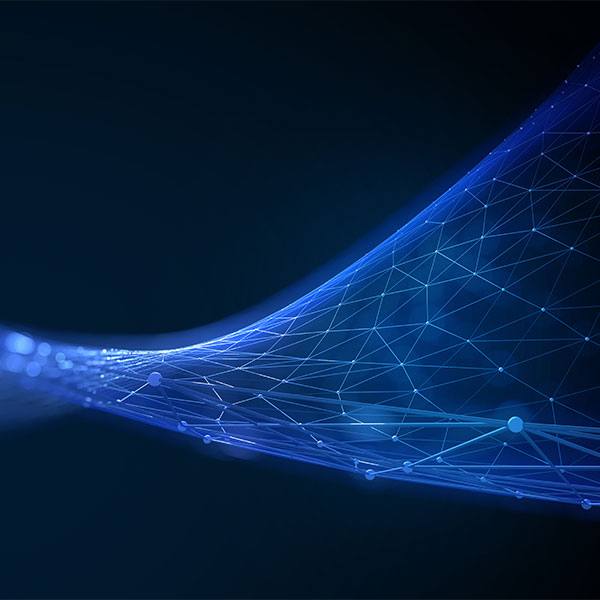-
Science Saturday: Addressing the challenges of chimeric antigen receptor-T cell therapy
Article by Marla Broadfoot
Chimeric antigen receptor-T cell therapy (CAR-T cell therapy) — a type of immunotherapy that reprograms a patient's T cells to recognize and destroy cancer cells — has revolutionized the treatment of blood cancers. While the technique has successfully sent patients with advanced disease into remission, it is far from perfect. CAR-T cell therapy has three main problems that Mayo is seeking to address to bring the full potential of this promising treatment to patients, says Saad Kenderian, M.B., Ch.B., a Mayo Clinic researcher.
The first problem is toxicity. In amping up the immune system to fight cancer, the technique can unleash a torrent of pro-inflammatory cytokines known as a "cytokine storm" that can be toxic to the brain, and lead to headache, confusion and delirium, among other neural changes. Fortunately, these changes are usually reversible.
The second problem — and the focus of Dr. Kenderian's research — is that CAR-T cell therapy only achieves long-lasting results in a small subset of patients.
For example, clinical trials have shown that a single infusion of CAR-T cell therapy targeted against a molecule known as BCMA that marks multiple myeloma cells prompted remission in 80%–100% of patients.
"But most of those patients relapsed within two years, as the CAR-T cells became dysfunctional," says Dr. Kenderian.
He hypothesized that this dysfunction was caused by the tumor microenvironment. Kenderian's laboratory discovered that specific cells in the microenvironment — known as cancer-associated fibroblasts — exuded chemicals that kept the CAR-T cells from doing their jobs. Dr. Kenderian believed that if they could get rid of those cells, then the CAR-T cells could get back to fighting cancer.
Reona Sakemura, M.D., Ph.D., a postdoctoral fellow in Dr. Kenderian's lab, designed a CAR-T cell therapy that went after these cancer-associated fibroblasts at the same time as it went after the multiple myeloma cells. In a recent paper in Blood, the researchers showed that this dual-targeting strategy made the CAR-T cells more potent, preventing the development of resistance in a mouse model of multiple myeloma.
They also conducted a series of toxicity studies on the new approach, which they plan to publish soon.
If everything goes according to plan, Dr. Kenderian said they could begin testing the dual-targeted CAR-T cell therapy in clinical trials in patients within two years.
"We need strong, inhibition-resistant CAR-T therapy," says Dr. Kenderian, who believes that the dual-targeting approach could expand the applications of CAR-T from blood cancers like multiple myeloma to solid tumors like brain, breast or liver cancer.
"The only way that is going to work is to make it stronger."
Even if researchers can make CAR-T stronger and less toxic, a third problem remains: access. CAR-T is a very complex and expensive specialized treatment. Work is underway at Mayo Clinic to expand ways to improve access and affordability.
Being able to improve CAR-T access and affordability would provide more opportunities for researchers to innovate, says Hong Qin, M.D., Ph.D., director of Regenerative Immunotherapies at Mayo Clinic in Florida.
Mayo Clinic's Center for Regenerative Medicine supports research that advances CAR-T cell therapy as part of its objective of delivering new cures to the practice in line with Mayo Clinic's 2030 vision. Expanding CAR-T cell therapy is one of seven workstreams within Mayo's enterprisewide biomanufacturing strategy led by the Center for Regenerative Medicine.
Since joining Mayo two years ago, Dr. Qin has overseen construction and staffing of the Center for Regenerative Medicine's Advanced Biomanufacturing Facility in Florida. The facility deploys current Good Manufacturing Practices (cGMP) to be manufactured under strict sterile quality control measures that meet Food and Drug Administration guidelines. It is operated by experts in CAR-T cell production. Dr. Qin says this makes it feasible for more Mayo investigators to translate their new research discoveries to clinical application.
"My hope is that we can help boost the translational research of immunotherapy for Mayo Clinic and its patients," he says.
Dr. Qin recently developed the first proprietary CAR-T cell therapy that will be manufactured in the good manufacturing practices facility. This form of CAR-T cell therapy, like Dr. Kenderian's, was designed to address relapse. Previous clinical trials evaluated a CAR-T cell therapy that targeted a molecule called CD19 antigen, which sits on the surface of many hematological malignant tumors. This therapy resulted in overall response rates of up to 90% in B-cell acute lymphoblastic leukemia and 50%–80% in lymphoma. Despite these initial responses, up to 40% of patients experienced a relapse as their tumors shed the CD19 antigens, marking them for destruction. Dr. Qin and his team are planning to advance this research to clinical trials to verify the findings.
To treat this "antigen escape," Dr. Qin and his team designed a CAR-T cell therapy that targets a second cancer marker known as BAFF-R. They found that the approach promoted durable remission in preclinical models and are preparing investigational new drug applications to begin clinical trials.
"However, we cannot use a cGMP facility to produce only one product," says Dr. Qin. "So our team is continuing to develop more innovative CAR-T cell therapies to form a long-term product pipeline."
###










